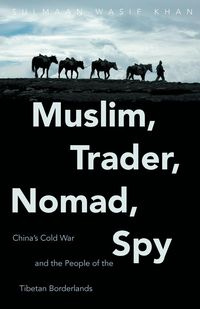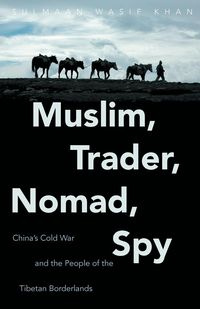Muslim, Trader, Nomad, Spy - Khan Sulmaan Wasif
Muslim, Trader, Nomad, Spy - Khan Sulmaan Wasif
- China's Cold War and the People of the Tibetan Borderlands
AutorzyKhan Sulmaan Wasif
What Chinese policymakers confronted in Tibet, Khan argues, was not a "third world" but a "fourth world" problem: Beijing was dealing with peoples whose ways were defined by statelessness. As it sought to tighten control over the restive borderlands, Mao's China moved from a lighter hand to a harder, heavier imperial structure. That change triggered long-lasting shifts in Chinese foreign policy. Moving from capital cities to far-flung mountain villages, from top diplomats to nomads crossing disputed boundaries in search of pasture, this book shows Cold War China as it has never been seen before and reveals the deep influence of the Tibetan crisis on the political fabric of present-day China.
EAN: 9781469630755
Symbol
839FCA03527KS
Rok wydania
2016
Oprawa
Miekka
Format
14.0x21.6cm
Język
angielski
Strony
216

Bez ryzyka
14 dni na łatwy zwrot

Szeroki asortyment
ponad milion pozycji

Niskie ceny i rabaty
nawet do 50% każdego dnia
Niepotwierdzona zakupem
Ocena: /5
Symbol
839FCA03527KS
Kod producenta
9781469630755
Rok wydania
2016
Oprawa
Miekka
Format
14.0x21.6cm
Język
angielski
Strony
216
Autorzy
Khan Sulmaan Wasif

In 1959, the Dalai Lama fled Lhasa, leaving the People's Republic of China with a crisis on its Tibetan frontier. Sulmaan Wasif Khan tells the story of the PRC's response to that crisis and, in doing so, brings to life an extraordinary cast of characters: Chinese diplomats appalled by sky burials, Guomindang spies working with Tibetans in Nepal, traders carrying salt across the Himalayas, and Tibetan Muslims rioting in Lhasa.
What Chinese policymakers confronted in Tibet, Khan argues, was not a "third world" but a "fourth world" problem: Beijing was dealing with peoples whose ways were defined by statelessness. As it sought to tighten control over the restive borderlands, Mao's China moved from a lighter hand to a harder, heavier imperial structure. That change triggered long-lasting shifts in Chinese foreign policy. Moving from capital cities to far-flung mountain villages, from top diplomats to nomads crossing disputed boundaries in search of pasture, this book shows Cold War China as it has never been seen before and reveals the deep influence of the Tibetan crisis on the political fabric of present-day China.
EAN: 9781469630755
What Chinese policymakers confronted in Tibet, Khan argues, was not a "third world" but a "fourth world" problem: Beijing was dealing with peoples whose ways were defined by statelessness. As it sought to tighten control over the restive borderlands, Mao's China moved from a lighter hand to a harder, heavier imperial structure. That change triggered long-lasting shifts in Chinese foreign policy. Moving from capital cities to far-flung mountain villages, from top diplomats to nomads crossing disputed boundaries in search of pasture, this book shows Cold War China as it has never been seen before and reveals the deep influence of the Tibetan crisis on the political fabric of present-day China.
EAN: 9781469630755
Niepotwierdzona zakupem
Ocena: /5
Zapytaj o produkt
Niepotwierdzona zakupem
Ocena: /5
Napisz swoją opinię

